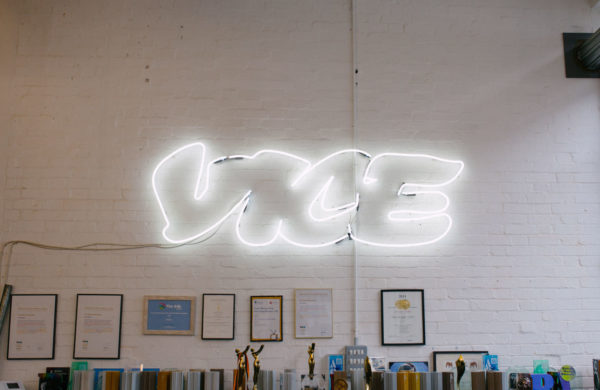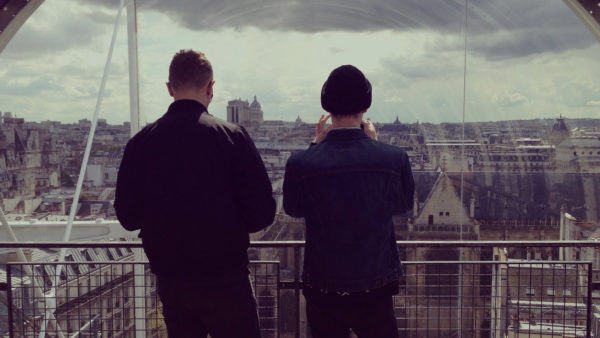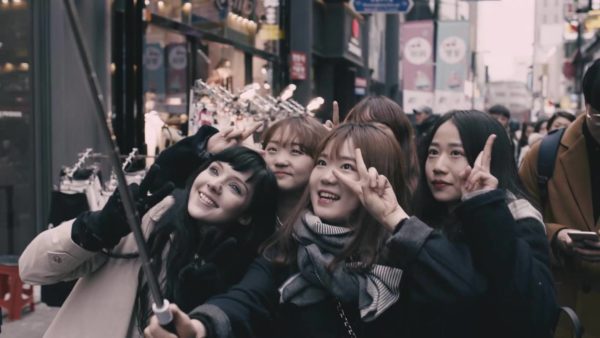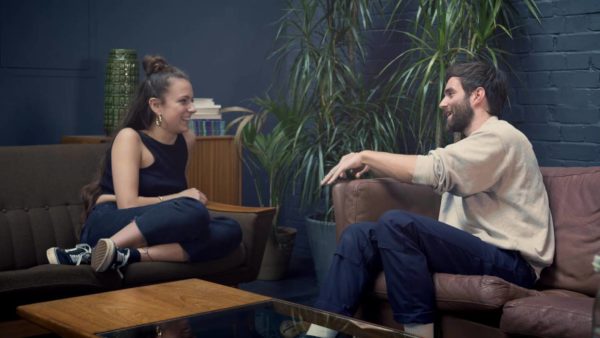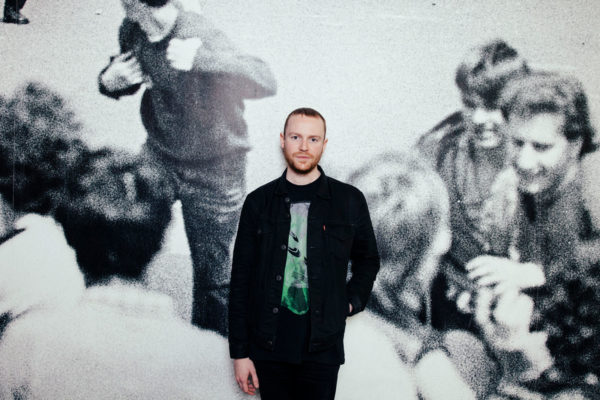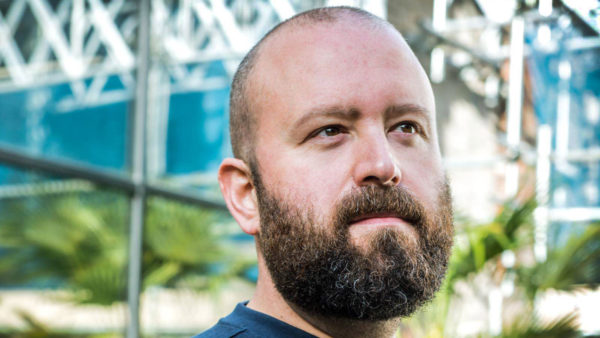1.01 Starting Out
Milene Larsson, Punk vs Sharia
What I learned from the street-punk tsunami orphans of Indonesia.
Milène Larsson is an award-winning documentary filmmaker and journalist who covers civil rights, social uprisings, migration, gender and women’s social status around the world for VICE, VICE News and Broadly. She has been at VICE for 15 years and is currently managing its video production across Europe, the Middle East and Africa.
I’ve probably made more than 40 films for VICE by now, so there are lots of practical realisations I’ve come to in that time – stuff like “don’t drive an old jeep into the desert for a week, especially not when your satellite phone is out of credit”, or “don’t follow guerrillas into a minefield or go alone to the HQ of a neo-Nazi group” – but a moving one that comes to mind was during the filming of a documentary I hosted and produced for Noisey called Punk Vs Sharia. We heard a story about the last gang of punks in a place called Aceh, the only Indonesian province ruled by Sharia law. Sixty-five punks had been arrested and taken to a detention camp where the guards had shaved their heads, removed their piercings, burnt their clothes and forced them to recite the Qu’ran for ten days. After that, their numbers dwindled but there remained a hardcore band of 19 or so that we wanted to meet.
Though the Aceh punks sometimes use the internet to promote their music, mostly they’re offline and sleeping rough. We eventually found the bus station they were staying in about a day’s drive from Banda Aceh, the region’s capital. Of all the places to suffer, Aceh was hit hardest by the huge tsunami in 2004 and it’s where these young punks were caught and imprisoned, at a gig they’d put on to raise money for tsunami victims. This is a Sharia city, remember, so the fact that men and women could go to something like this and not be segregated was deemed bad enough, let alone the crowds of drunk people in leather studded jackets moshing to loud, live punk rock in public.
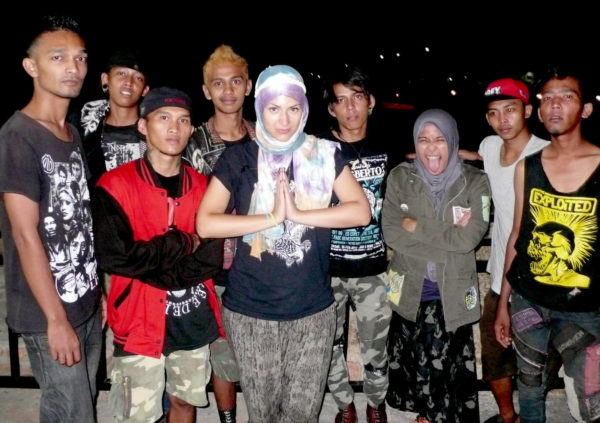
Sixty-five punks were arrested and taken to a camp where the guards shaved their heads, removed their piercings, burnt their clothes and forced them to recite the Qu’ran
It seemed crazy to me that just holding a punk concert could cost them their freedom. Through a contact, we met a young punk named Yudi Bolong, and through him lots of others who were living on the street. They had an amazing sense of community and through that they managed to exist and survive despite living in a region that is stricter than anywhere else I’ve ever been. I had to wear a hijab and fully covering clothes and in the car, I had to ride in the back with the men in front. I couldn’t stay in the same hotel as the male crew either – it was so strict. Then you have these kids wandering around in a way that would be considered rowdy even in London. So you can see how there’s a clash.
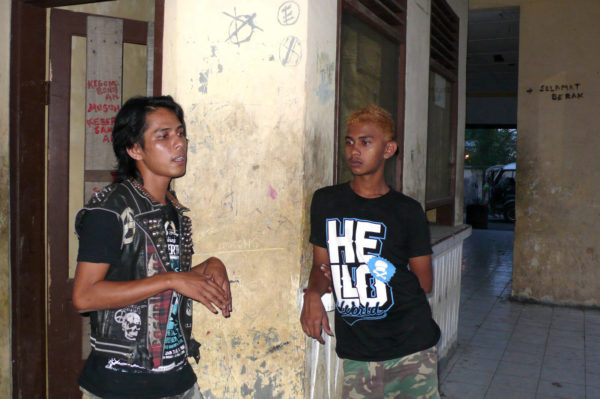
In the beginning, while I sympathised with them, there was a part of me that thought, ‘OK guys, come on, maybe just rein things in a bit and you won’t get yourself into trouble so much?’ We were at Banda Aceh’s Tsunami Museum – a place for people to come and mourn their loved ones, in a region ruled by Sharia law – and they were sat there playing guitar and getting drunk on moonshine.
We were at Banda Aceh’s Tsunami Museum and they were sat there playing guitar and getting drunk on moonshine
After about a week came the “aha” moment. We went with them to this grim tourist spot; a massive ship that had been washed miles inland by the tsunami. A friend of Yudi’s described how he was out running an errand when the wave hit and had to take cover in a mosque. He tried to return home but couldn’t find it; the whole city had been flattened and his parents and little sister had died. Sat next to him while he was telling us this story was one of the really young boys that the punks had taken under their wing; Yudi’s friend had been feeding and caring for him. It turns out this punk community came together because they’re mostly tsunami orphans. They had nowhere to go and no one to care for them, so they have to care for each other. For many of them, this street punk lifestyle wasn’t a choice. Suddenly, it made sense why they’d hang out at the tsunami museum.
They had nowhere to go and no one to care for them, so they have to care for each other.
I’d been uncomfortable with the idea of them disrespecting the feelings of others who’d gone there to mourn, but now all those thoughts were gone. I realised how sad and fucked it was that they were seen as annoying criminal delinquents when they were just kids who’d lost everything in a freak storm. You had a real contrast between the super pious Sharia-obeying people thinking they had the moral high ground and these punks who were taking in the young street kids, which is not something society was doing. That felt like an important moment where I realised how significant community is and how vital it is to not be scared of the status quo. Why should they not be able to mourn in their own way? Why don’t they deserve their own community and sense of belonging?
Continue Module
Welcome to VICE Film School
Welcome to VICE Film School! Here's what we're doing and why we're doing it.
A Note on Wondervisions
A quick note from Adam Bracegirdle, Creative Director, VICE UK and Director, WonderVisions: The Alec Bracegirdle Memorial Film Fund.
Beneath the Credits:
Beyond Beauty
In 2016, i-D made their first documentary film. It clocked up 4.5 million views in its first week. These are some of the people who made the film.
Back & Forth:
Daisy-May & Matt
Daisy-May and Matt worked together to create Iceman, a documentary about superhuman Wim Hof. In this episode they dissect the experience from their own unique points of view.
Epiphanies:
Milene Larsson, Punk vs Sharia
What I learned from the street-punk tsunami orphans of Indonesia.



















